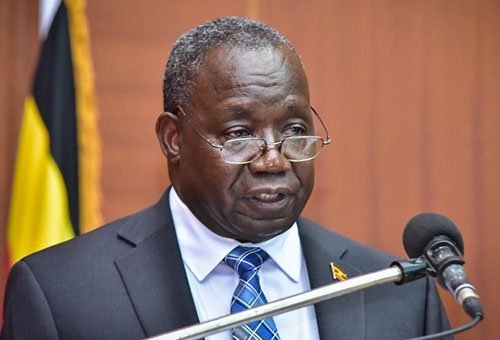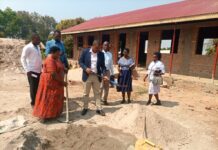By Johnson Kanyesige
The Uganda National Examinations Board (UNEB) has released the timetable for this year’s national examinations, featuring the highly anticipated assessments of the pioneer class studying under the new lower secondary (O’Level) curriculum.
Dan Odongo, the Executive Director of UNEB, announced that the examinations, which have drawn more than 1.3 million registered candidates across all levels, will begin on October 11, starting with the Uganda Certificate of Education (O’Level).
Odongo made these remarks on Monday morning while speaking to journalists at the media center in Kampala. He added that unlike the previous years where the board has been staging three examinations, this year comes with four examinations.
The examination includes two under the Uganda Certificate of Education (one following the new lower secondary curriculum and the other under the old curriculum, being offered for the last time), as well as the Primary Leaving Examination and the Uganda Advanced Certificate of Education Examination.
As per the timetable, the two O-Level final assessments will commence with a briefing on October 11, followed by the examinations starting on October 14. Assessments for the new curriculum will continue until November 8, while those under the old curriculum will conclude on November 15.
The Primary Leaving Examination will begin with a briefing on Monday, November 4. Candidates will have a break on Tuesday and then take their exams on Wednesday and Thursday of that week. The Uganda Advanced Certificate of Education (UACE) will start on November 8 and run through December 6.
A total of 1,320,400 candidates have registered for the Four Examinations. This is an increase of 7.8 percent from last year’s candidature of 1,224,371. Of the total candidature, 51.1 percent are females while 48.9 percent are males. 379,620 of the registered candidates are UCE candidates which includes 369,477 for the NLSC and 10,143 for the transitional examination.
Of the entire candidature, 4,498 are Special Needs Education learners, as compared to 3,698 candidates who registered last year. The SNE candidates include 3,295 (PLE), 760, (UCE- NLSC), 38 (Transitional UCE- Old curriculum); and 405 (UACE). Uganda Prisons (Luzira Upper and Mbarara Main) have registered 108 Candidates.
Overview of the Time Table for the New Curriculum
The timetable for the NLSC has 36 subjects as compared to the 46 subjects of the old curriculum. It focuses on the End of Cycle assessment conducted by UNEB, which will contribute 80% of the overall achievement by each learner. The other 20% is comprised of the Continuous Assessment carried out at school for every learner.
There are also new subjects and assessment modalities coming on board for the first time. They are Ugandan Sign Language with a total of 72 pioneer candidates, eight of whom are hearing learners; and Physical Education (PE) with a total candidature of 15,000 registered in 1,341 centers.
Odongo said that in terms of assessment modalities, the board will assess learners’ achievements in listening and speaking for two of the foreign languages- Latin and Arabic. These were previously examined by only pen and paper. The other foreign languages will still be assessed in listening and speaking, with emphasis on the principles of fairness and evidence based assessment.
A separate time table has been set aside for assessing oral, speaking and listening for the languages where it is required, observing and signing for the Uganda Sign Language, Performing Arts and performance for Physical Education, practical Nutrition and Food Technology, as well as Technology and Design (TD). These examinations are already under way.
“UNEB is sending visiting examiners to the respective centers to conduct the examination before 12th October, 2024,” said Odongo.
He added that the board is progressing with the new curriculum to ensure a comprehensive assessment of nearly all aspects of learning, including the skills acquired, cognitive abilities, attitudes, motor skills, and much more, which aligns with global trends.



